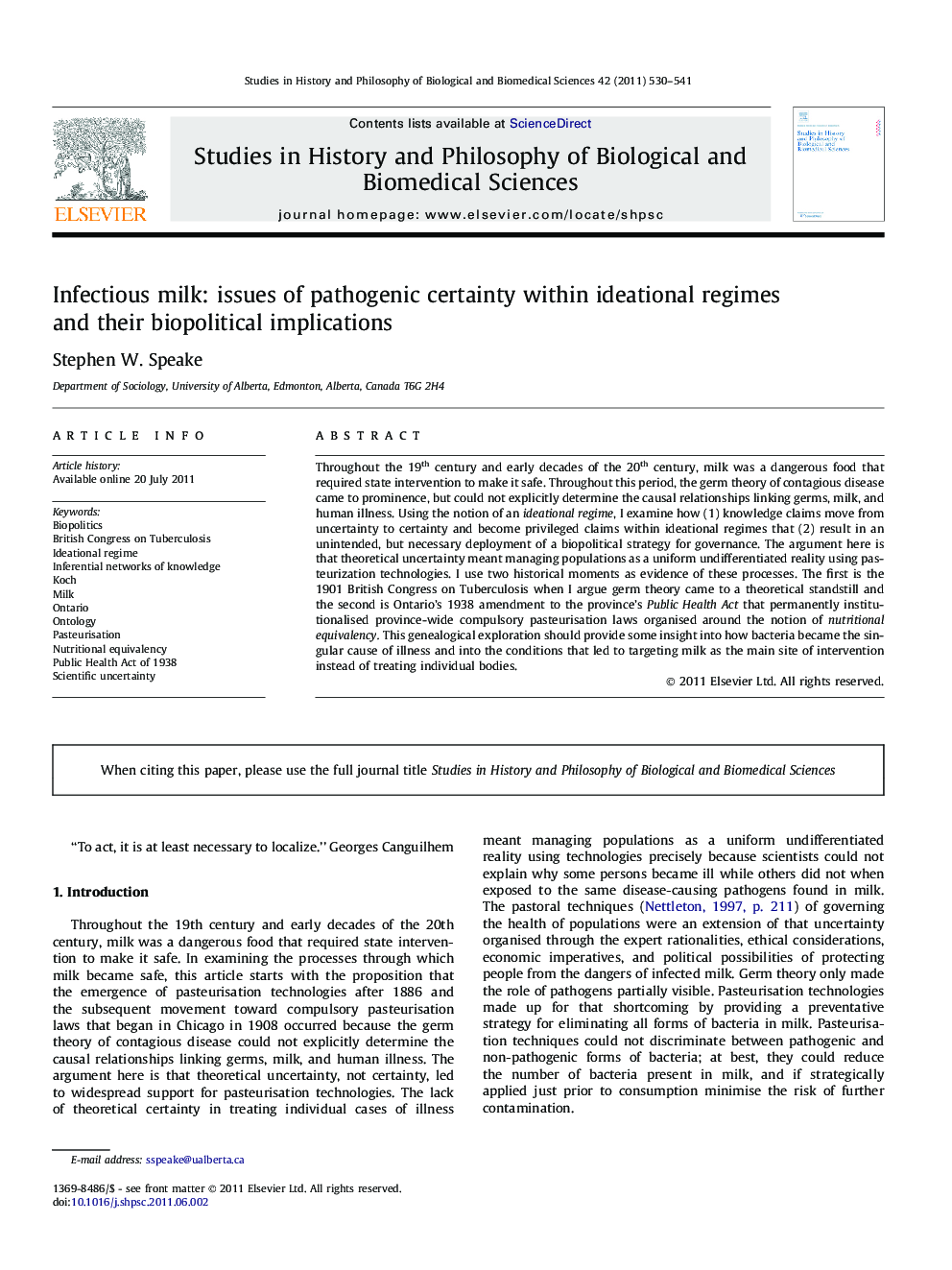| Article ID | Journal | Published Year | Pages | File Type |
|---|---|---|---|---|
| 1161993 | Studies in History and Philosophy of Science Part C: Studies in History and Philosophy of Biological and Biomedical Sciences | 2011 | 12 Pages |
Throughout the 19th century and early decades of the 20th century, milk was a dangerous food that required state intervention to make it safe. Throughout this period, the germ theory of contagious disease came to prominence, but could not explicitly determine the causal relationships linking germs, milk, and human illness. Using the notion of an ideational regime, I examine how (1) knowledge claims move from uncertainty to certainty and become privileged claims within ideational regimes that (2) result in an unintended, but necessary deployment of a biopolitical strategy for governance. The argument here is that theoretical uncertainty meant managing populations as a uniform undifferentiated reality using pasteurization technologies. I use two historical moments as evidence of these processes. The first is the 1901 British Congress on Tuberculosis when I argue germ theory came to a theoretical standstill and the second is Ontario’s 1938 amendment to the province’s Public Health Act that permanently institutionalised province-wide compulsory pasteurisation laws organised around the notion of nutritional equivalency. This genealogical exploration should provide some insight into how bacteria became the singular cause of illness and into the conditions that led to targeting milk as the main site of intervention instead of treating individual bodies.
► I examine the relationship between germ theory and pasteurisation technology. ► Show scientific explanations are historical fabrications organised on their utility. ► I suggest that pasteurisation could not justify a belief ingerm theory. ► I examine how scientific claims become privileged within discursive fields. ► Show how scientific uncertainty results in biopolitical forms of governance.
